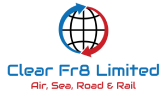How to import goods to the UK
Decide who will make your customs declarations and transport your goods: You can either make customs declarations yourself or hire a customs agent or freight forwarder to do it for you. If you decide to do it yourself, you will need to register for the National Export System (NES) and get an Economic Operators Registration and Identification (EORI) number that starts with GB. If you decide to hire a customs agent or freight forwarder, they will handle the customs declarations and transport of your goods for you. Check the tariff rates that apply to goods you import: The UK Global Tariff applies to all goods imported into the UK, unless the country you are importing from has a trade agreement with the UK. You can use the Trade Tariff tool on gov.uk to find out the tariff rates that apply to your goods.
Check if you need a certificate or licence to import your goods: Some goods require a certificate or licence to be imported into the UK. You can check if your goods require a certificate or licence on gov.uk.
Get your goods through customs: Once your goods arrive in the UK, they will need to go through customs. You or your customs agent will need to submit a customs declaration and pay any customs duties and taxes that are due.
Organise for your goods to be released: Once your goods have cleared customs, you will need to organise for them to be released from the port or airport. This may involve paying any handling or storage fees that are due.
Claim a VAT refund: If you are registered for VAT in the UK, you may be able to claim back the VAT you paid on your imported goods. You can do this by including the VAT on your VAT return.
Keep invoices and records: You must keep all invoices and records relating to your imports for at least 6 years. This includes invoices, transport documents, and any other documents relating to the import of your goods.
In addition to these steps, there are several other factors that you should consider when importing goods into the UK:
-
Comply with import regulations: It is important that you comply with all relevant import regulations when importing goods into the UK. This includes complying with any safety standards, labelling requirements, and other regulations that apply to your specific type of goods.
-
Consider using a freight forwarder: A freight forwarder can help you navigate the complexities of importing goods into the UK. They can handle all aspects of the import process for you, including arranging transport, making customs declarations, and dealing with any issues that arise during the import process.
-
Understand Incoterms: Incoterms are international trade terms that define who is responsible for various aspects of an international shipment, such as who pays for transport and insurance, who is responsible for loading and unloading the goods, and who bears the risk of loss or damage during transport. It is important that you understand Incoterms when importing goods into the UK so that you know what responsibilities you have as an importer.
-
Consider using a customs warehouse: A customs warehouse is a facility where imported goods can be stored without paying any duties or taxes until they are released into free circulation in the UK. Using a customs warehouse can help you manage your cash flow by allowing you to defer payment of duties and taxes until you are ready to release your goods into free circulation.
-
Understand how exchange rates affect import costs: Exchange rates can have a significant impact on the cost of importing goods into the UK. If the value of the pound falls relative to other currencies, it will become more expensive to import goods from countries whose currencies have appreciated against the pound. It is important that you understand how exchange rates affect import costs so that you can plan accordingly.
-
Consider using trade finance: Trade finance is a type of financing that helps businesses manage their cash flow when importing or exporting goods.
-
Trade finance can help businesses bridge the gap between paying for imported goods and receiving payment from their customers by providing short-term financing solutions such as letters of credit or invoice financing.
In summary, importing goods into the UK involves deciding who will make your customs declarations and transport your goods, checking the tariff rates that apply to your goods, checking if you need a certificate or licence to import your goods, getting your goods through customs, organising for your goods to be released, claiming a VAT refund if applicable, keeping invoices and records, complying with import regulations, considering using a freight forwarder, understanding Incoterms, considering using a customs warehouse, understanding how exchange rates affect import costs, and considering using trade finance.
DOCUMENT REQUIREMENTS
- Certificate of Origin
- Packing List
- Bill of lading
- Commercial Invoice
- Customs Clearance

